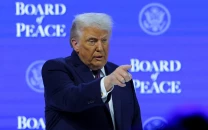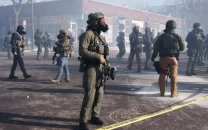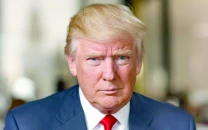Negotiating with the Taliban
Is there a compelling case in favour of negotiations? Yes.

The writer is a student at the University of California, Santa Barbara, majoring in International Relations
First, Afghanistan’s President Hamid Karzai reacted with indignation to the decision made by the Taliban leadership to open an office under the banner of the Islamic Emirate of Afghanistan. Karzai then announced that Afghanistan will not be participating in peace negotiations with the Taliban. What followed was last week’s bombing, by the Taliban at the presidential compound, believed to be the most secure area in Afghanistan.
In March 2009, US President Barack Obama unveiled his hyphenated Af-Pak strategy, backing for the first time the idea that reconciliation with some members of the Taliban would be favourable to the long-term security of the region. This strategy, outlined in a white paper, marked a shift in the counterterrorism approach, particularly with surges in troop levels, increased non-military aid — notably, in the form of the $7.5 billion Kerry-Lugar-Berman civilian aid package — alongside the topic of interest: a strategy to reintegrate mid-level Taliban officers, in the hopes of incorporating them into the political process. In other words, the guiding directive was that bringing members of the Taliban into the political mix would yield tolerance for the democratic process on the part of the rank and file, while also giving the organisation legitimacy as political actors. It was an idea backed by high quality empirical research.
A study by political scientists at RAND Corporation revealed that in the case of all terrorist groups analysed between 1968 and 2006, half of them ended by gradually sinking into the sphere of politics. In only seven per cent of the cases did the use of military force result in the end of a group’s operation.
Critics of negotiations argue that military victories offer a better chance at peace, citing research which shows that robustness of peace is correlated with the use of force.
Monica Toft, at the Blavatnik School of Government, showed through her research that a decisive military victory results in a longer period of peace. Moreover, she concludes that negotiated settlements result in a less democratic government in post-war years. In addition, critics point towards political scientist Robert Mandel’s 2005 study, which showed that in modern times, “fifty-four per cent of all peace agreements break down within five years of signature”.
However, in spite of these statistics a compelling case can be made in favour of negotiations. To start, any bargain must be a multilateral affair, involving the US, Afghanistan, the Taliban and Pakistan. Afghanistan and Pakistan have a shared history of warfare, a restive Pashtun base and most important, a porous border that stretches for hundreds of miles.
Ishtiaq Ahmed, a visiting Fellow at Oxford, observes that the rank and file of the Taliban is primarily of Pashtun ethnicity. Therefore, reconciliation is in the primary interest of Pakistan, given that unrest in Pakistan’s tribal areas is, in large part, a spillover from Afghanistan’s eastern wing. In the normative sense, an agreement sketched under this framework should then have the required pardon of both the Pakistani security establishment as well as the military.
With 2014 fast approaching and leverage on the part of both the Afghan government and the US commensurately waning, it is time Hamid Karzai returns to the bargaining table in order to draft a settlement.
Published in The Express Tribune, July 3rd, 2013.
Like Opinion & Editorial on Facebook, follow @ETOpEd on Twitter to receive all updates on all our daily pieces.



















COMMENTS
Comments are moderated and generally will be posted if they are on-topic and not abusive.
For more information, please see our Comments FAQ